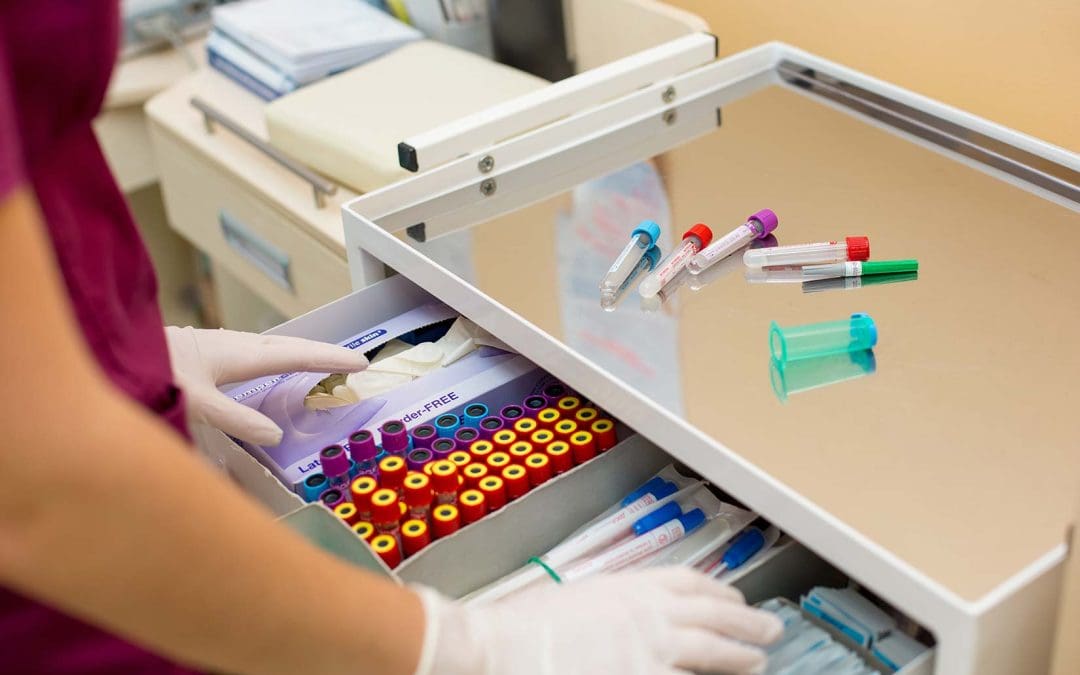If you are already registered in a laboratory assistant course or are interested in becoming a professional in this field, at some point, you probably wondered about your future career and the paths you can follow.
To help you decide on an area to follow, we have developed this article, answering common questions such as “Where can a laboratory assistant work?” or “What can I specialize in?” that may have come to mind. Let’s dive deeper into it!
Lab Assistant Specializations
Each area which you can follow after finishing your laboratory assistant program has different growth opportunities, challenges, daily tasks, and requires specific skills, allowing you to match your career goals with your passion. Some areas bring you close to patient care, while others push you into research.
Here are the main specializations in details:
Hematology, Pathology & Clinical Chemistry
If you like specimen testing tasks, these are your go-to areas. Often in high-demand in Canada, the hematology career requires collecting and testing blood samples to reveal conditions such as infections, clotting, and anemia. In the pathology area you will do the same, but with tissue samples from biopsies instead of blood, to discover causes of diseases and provide answers to doctors and patients.
The clinical chemistry supports tests on blood and other fluids like urine to check organ functions and levels of sugar, cholesterol, and more. These areas require precision and focus from professionals, since the results guide doctors and patients on treating such conditions.
Where can these professionals work?
- Hospitals and medical centres
- Private diagnostic laboratories
- Public health agencies
Histology & Cytology
These are microscopy specializations that help with early diagnosis of diseases. Histology analyzes full tissue samples and provides detailed view, while cytology examines individual cells, usually from body fluids or samples such as Pap test, to try to find any abnormalities, focused on cancer screening.
In both paths, the lab assistant needs to be patient, focused, and precise to become the behind-the-scenes expert, allowing pathologists to diagnose diseases like cancer with certainty.
Where can these professionals work?
- Hospital pathology departments
- Cancer centres
- Private histology labs
Microbiology & Immunology
These specializations are the fighters against infectious diseases and immune disorders, and demand care with samples and accuracy when testing it.
As suggested by the name, microbiology is a career to dive into the microscopic universe and an invisible world where you’ll grow and analyze bacteria cultures, fungi, and viruses to help doctors in choosing the right antibiotics and treatments to avoid infections from spreading.
In immunology, the focus is on the body’s defense system rather than the cause of infections. You will test immune responses, allergies, and autoimmune diseases (type 1 diabetes, for example) to guide doctors on where the body immunology system needs support.
Where can these professionals work?
- Clinical microbiology labs
- Pharmaceutical companies
- Public Health laboratories
- Research institutions
Molecular Diagnostics & Genetic Testing
Looking to step into the future of medicine? You’ve found your career path! These are fast-moving and technological areas where you will work with DNA and RNA to discover genetic predispositions, identify infectious agents, and guide personalized treatment plans.
As a laboratory assistant in the molecular diagnostic field, you prepare and test genetic samples to try to identify genetic markers linked to diseases such as cancer and rare conditions based on the patient’s genetic profile. Now, if you choose the genetic testing path, you will investigate hereditary diseases to support families make informed decisions about preventive care and pregnancy.
Where can these professionals work?
- Genetics clinics
- Biotechnology firms
- Hospital Molecular labs
- Academic Research labs
Environmental Testing & Quality Assurance
In the environmental testing field, a lab assistant’s expertise goes beyond the human body and reaches daily life environments. You will monitor and handle samples of water, air, and soil to check for toxins and pollutants to meet health regulations and keep communities safe from hazardous exposures like drinking unhealthy water, for example.
A quality assurance professional performs a similar role, but when it comes to products. You will test food, consumer goods, and pharmaceutical products to confirm they meet the government standards.
These two areas are ideal for those who, instead of working only in healthcare, want to become part of protecting the environment and ensure products are safe for everyone.
Where can these professionals work?
- Environmental consulting firms
- Food and beverage companies
- Pharmaceutical manufacturers
- Government agencies
- Independent quality assurance labs
How to Choose the Right Path for You
Your laboratory assistant career grows faster and stronger when you match it with your personality. A simple analysis can help you:
- Make a self-assessment of your interests, strengths, skills and values and compare to each area to see if there’s a match.
- Take advantage of internships, practicum and volunteering opportunities to have a chance of exploring different areas.
- Create a professional network to ask other professionals about their jobs and clarify your questions.
- List your short and long term career goals to analyze which specialization can help you achieve them faster.
A laboratory assistant career gives you more than one direction and you can always change it if you are unhappy with your current field or want new challenges.
Remember, your education is the foundation of your career. If you are still in the beginning of this journey, we from West Coast College are here to help you take the first step! Contact us and become a medical lab technician in Canada.

